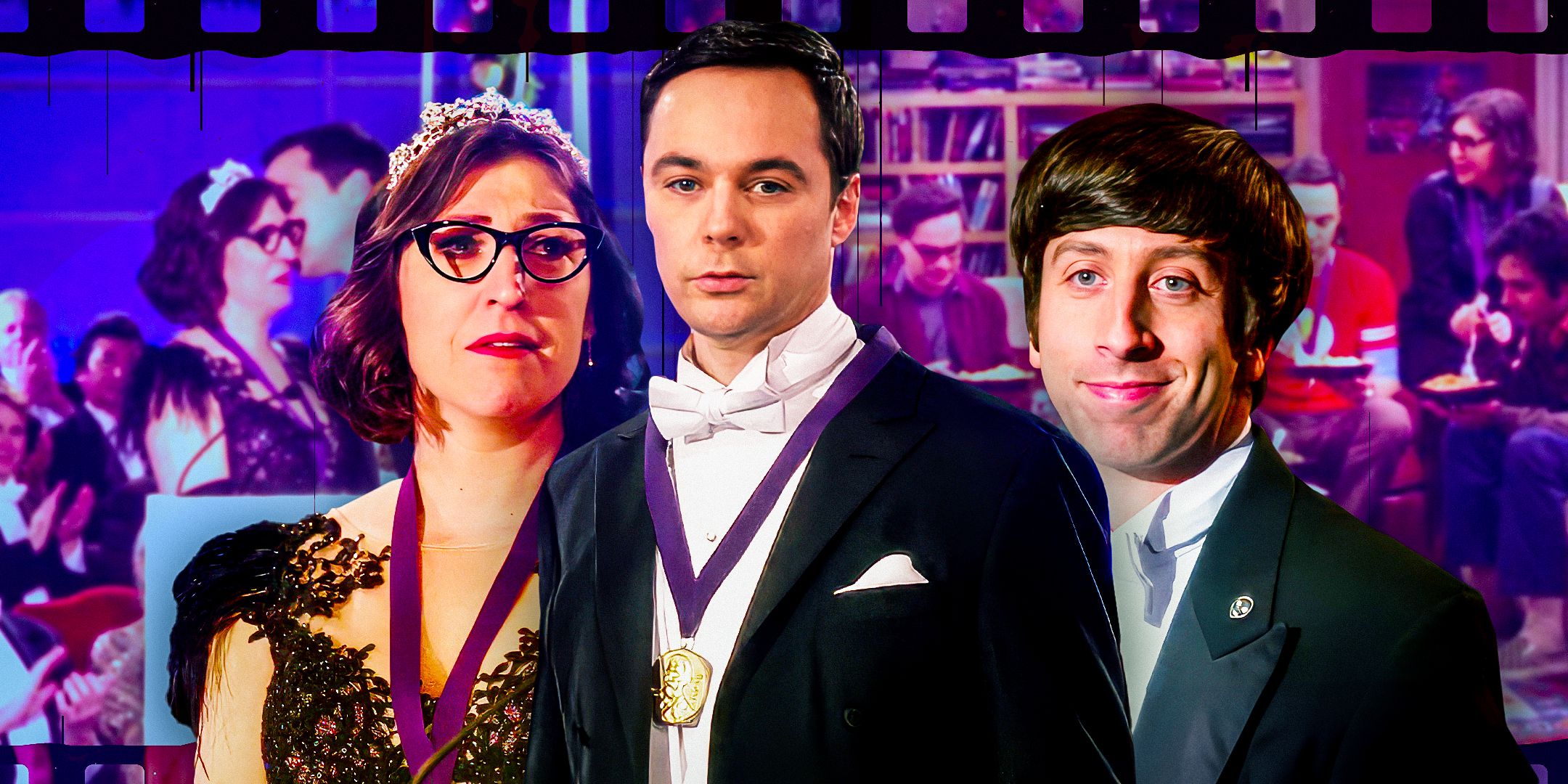
When The Big Bang Theory aired its final episode on May 16, 2019, it marked the end of an era — not just for its cast and crew, but for millions of viewers around the world who had followed the journey of seven quirky characters for over a decade. The series finale, titled The Stockholm Syndrome, was heartfelt, nostalgic, and — in many ways — deeply satisfying.
But it also stirred debate. Did the finale do justice to each character’s arc? Did it answer the big questions fans had been asking for years? Or did it lean too heavily on sentiment and tradition? For a show that began as a sitcom about socially awkward scientists, the ending was surprisingly emotional — and surprisingly controversial.
Sheldon’s Nobel Moment — and Emotional Breakthrough
The emotional centerpiece of the finale was Sheldon Cooper’s long-awaited win of the Nobel Prize in Physics, shared with Amy Farrah Fowler. It was a career milestone that Sheldon had dreamed of since season one. But the true climax wasn’t the prize — it was his acceptance speech.
In a moment of rare vulnerability, Sheldon turns away from science and thanks his friends. “In my own way, I love you all,” he says, looking directly at them. It’s a line that encapsulates 12 years of emotional growth. The boy who once couldn’t hug anyone without panic had learned how to care, to sacrifice, and to express gratitude.
This moment was not just Sheldon’s — it was the culmination of Jim Parsons’ legendary performance. It reminded audiences that beneath Sheldon’s eccentricities was a character who had fought tooth and nail to become someone better.
Amy’s Victory — And a Quiet Revolution
Amy Farrah Fowler, played by Mayim Bialik, also won the Nobel. But her character’s journey was even more revolutionary in a quieter way.
Once a loner with little social interaction, Amy became a confident woman with professional success, meaningful friendships, and a partner who — eventually — respected her for exactly who she was. During her Nobel speech, she used her platform to encourage young girls to pursue science, echoing Bialik’s real-life advocacy.
In a show about male scientists, Amy stood tall as a symbol of female empowerment in STEM. Her ending wasn’t flashy, but it was powerful — and long overdue in sitcom history.
Leonard and Penny: A Pregnancy Plot Twist
Perhaps the most divisive moment in the finale was the reveal that Penny was pregnant. For several seasons, she had made it clear that she didn’t want children — a stance that resonated with many viewers, particularly women.
Suddenly, the finale reversed that. Penny was expecting, and both she and Leonard seemed thrilled.
Some fans celebrated the news as a fitting next chapter. Others saw it as a betrayal of Penny’s previously stated autonomy. The show offered no explanation for her change of heart, leaving many to wonder: Was this Penny’s choice, or the writers’ need to wrap things up with a “traditional” sitcom ending?
Still, the chemistry between Kaley Cuoco and Johnny Galecki — and the tenderness of their scenes — helped soften the blow. Even with unanswered questions, there was undeniable warmth in watching their arc close with shared happiness.
Howard and Bernadette: Quiet Victories at Home
Howard and Bernadette didn’t undergo radical changes in the finale — and that was the point. Their lives had already evolved. From a sleazy pickup artist and a micro-biologist with a sharp tongue, they had grown into responsible parents juggling career and family.
They didn’t get a big speech or a dramatic storyline, but their contentment — and the show’s choice to let them be — was quietly satisfying. Not every ending needs fireworks. Sometimes, a calm domestic scene is enough to show how far a couple has come.
Raj’s Lonely Goodbye — Or a New Beginning?
Raj was the only character who remained single at the end of the series. While many hoped he would end up with Anu or rekindle something with past love interests, the writers chose a different path.
Raj walks into the Nobel ceremony arm in arm with Sarah Michelle Gellar, playing herself in a clever cameo — but it’s clear the moment is symbolic, not romantic.
For some fans, Raj’s solitude felt unfair. He had grown so much, overcome his anxieties, and opened his heart time and again. But others argued that ending without a partner wasn’t a failure — it was freedom. Raj didn’t need a relationship to be whole. He had friends, a career, and the confidence to keep searching.
Farewell, Apartment 4A

The final scene in the series didn’t involve a twist or a tearful goodbye. Instead, the camera slowly panned across the now-legendary apartment 4A, as the group shared a quiet dinner.
No words were spoken.
This silence, after 279 episodes of quick-witted dialogue and scientific banter, said everything. These people didn’t need grand declarations anymore. They had grown up. They were home.
Behind the Curtain: Why the Show Really Ended
Many fans still wonder why the show didn’t continue. CBS was open to a 13th season, the ratings remained high, and the cast still drew global attention. But the decision came from Jim Parsons, who felt it was time to move on.
Rather than continue without Sheldon, the creators — Chuck Lorre and Bill Prady — decided to end on a high note. It was a bold move. But it also allowed the show to finish on its own terms.
Conclusion: The Ending We Didn’t Know We Needed
The finale of The Big Bang Theory may not have pleased everyone. It wasn’t perfect. It left some threads dangling. It surprised us, frustrated us, and — at times — deeply moved us.
But that’s what good endings do.
They don’t wrap life into a neat package. They reflect it — messy, emotional, unfinished, and beautiful.
The Big Bang Theory ended the way it lived: with heart, humor, and a belief that even the most unlikely friendships can become family.
And years later, it still lingers — not just in reruns or memes, but in the hearts of fans who grew up laughing, crying, and evolving alongside it.